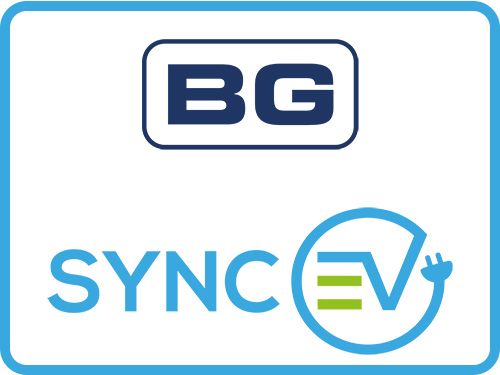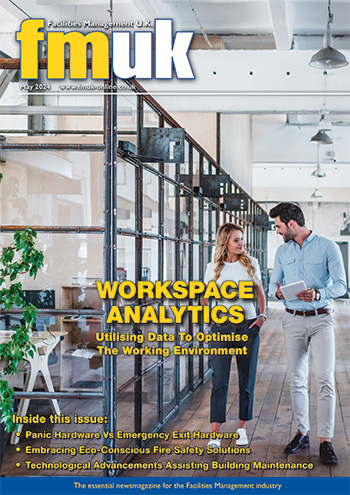Is Creativity The Solution To Litter?

Littering can put a strain on resources and service delivery – so how can the humble bin play a part in changing visitor behaviour? Laura Jackson, manager of Broxap Street Furniture’s litter bins division, believes a little creative thinking can lead to big improvements.
As a nation we’ve changed. The takeaway coffee is now a daily treat, meal delivery can be summoned at the touch of a button, and smoking is a visible part of life outdoors.
These habits have slipped into everyday life – but they come with a consequence.
The paper cup, the plastic bottle, the cardboard carton, even the cigarette butt. Often disposing of these items, particularly disposing of them responsibly, is not given a second thought.
It’s become clear that simply having a token litter or recycling bin on site is not always enough to stem ‘careful’ littering or even blatant rubbish dumping.
On the ground, these issues have a negative impact on the quality of the local environment and can be costly, time consuming and complex to tackle.
The bigger picture of course must consider the wider impact of litter pollution and the unsustainable way our food and packaging is produced, consumed and disposed of.
While the notion of ‘binfrastructure’ – the idea of having the right type of bin in the right place – has been around for a while, taking a fresh approach to litter management is starting to make inroads into this issue.
Making A Difference

As well as looking unsightly, and presenting the image of a site which is uncared for, litter can attract vermin, cause harm to existing wildlife and can even lower perceptions of safety.
Yet the message that it’s not just someone else’s problem doesn’t always seem to be getting through – until now.
Enter Hubbub, one of a number of growing and emerging environmental charities taking a radical new approach to improving recycling-on-the-go rates and spreading the keep it clean message.
It says that while most people recycle at home, only four in 10 recycle while out and about.
Its #InTheLoop campaign also aims to reduce contamination among recyclable waste in a multi-pronged approach to keep more materials in use for longer as part of a circular economy thanks to cleaner and greener site management.
Visit cities and towns such as Leeds, Dublin, Edinburgh, Swansea and Lambeth and you won’t help but notice these litter and recycling bin interventions.
Bright yellow vinyl wraps form the background for clear, precising messaging including images as well as text.
There’s even a nod to the locality with ‘Tidy!’ thanking people in Wales, or the instruction ‘Empty plastic and cans, nowt else’ in Leeds. It's a clever way to inspire local pride.
As the scheme has been so successful, Hubbub has even produced a toolkit and resources so facilities managers can adopt the same approach for free: https://www.intheloop.org.uk/
Take A New Approach

So bright bins with distinct messaging is supporting the recycling-on-the-go revolution, but different types of littering may need a different approach.
Ballot bins are also causing a stir in parts of the UK, taking the playful and fun approach one step further.
We all know how the internet goes wild over the age-old debate of whether it’s cream or jam first on a scone. And it would seem posing similar dilemmas and asking people to vote with their rubbish, or even their cigarette butts, is having the same effect.
Would you rather never eat pizza than swim with sharks? Do you call your trendy canvas shoes daps or plimsolls? Again, a little imagination and a poser which strikes a chord with the community can have a massive impact on success rates.
From outdoor ashtrays to large capacity double wheelie bin housings, this ‘pick your side’ approach has been shown to cut litter by up to 73% in some locations.
Of course these methods are being introduced because the way we now act as consumers has changed.
And we can’t ignore the fact that this is in part following the Covid-19 pandemic.
Hands-free compaction bins, with foot-operated pedals, provide waste and facilities management teams with a neat way to prevent overflowing street or site bins.
The internal hoppers remove the need for single use plastic bin liners and by compressing greater volumes of waste within the unit, collections are vastly reduced.
These bins even incorporate a solar panel which powers a real-time relay system, triggering alerts to collection crews when the bins are ready for emptying for a more efficient street cleansing service.
The size of aperture is another important consideration when thinking about the type of littering that needs tackling.
While recycling-on-the-go initiatives tend to use bins with apertures shaped like the waste being collected, such as a circular aperture for plastic bottles, cans and cups, roadside litter management schemes may need large, open goal-shaped apertures to capture rubbish being thrown from a vehicle. A bit like how a basketball player may be more likely to score if they aim at the backboard rather than the hoop.
Roadside litter costs about £1 billion a year to clean up and can create hazards for other road users as well as disruption to the roads network.
Whether operating a service station or working for the authority responsible for collecting A-road litter, the easier it is for drivers to recognise there’s a convenient bin for their use, the more often they will get used.
This year the government announced the maximum on-the-spot fines for littering was increasing from a £150 to a £500 fixed penalty notice.
Aimed at deterring anti-social behaviour, this is however just one tool available to local authorities.
Choosing to be bold with your binfrastucture is something everyone in facilities management can adopt – and there’s lots of support out there.
Share your ideas with your litter and recycling bin supplier, or tap into the online expertise and assets from the likes of Hubbub, Keep Britain Tidy and Wrap.
Innovation can break the littering habit. Visit https://www.broxap.com/
Click the article to enlarge it.

























































